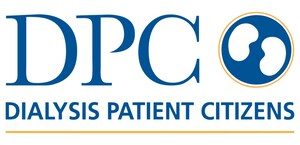Medicaid-Eligible Dialysis Patients Not Fully Informed of Treatment Options, Survey Finds
LOS ANGELES, Dec. 2, 2015 /PRNewswire-USNewswire/ -- End-stage renal disease (ESRD) patients who receive Medicaid are less likely to be informed of home modality and transplantation options than patients covered by Medicare or commercial insurance, according to survey research released today by Dialysis Patient Citizens (DPC).
The DPC survey found that while about 74 percent of ESRD patients overall are informed about the option of home hemodialysis, there is an information gap of 17 percentage points between patients covered by Medicare (77%) and Medicaid (60%). While 68 percent of ESRD patients overall are informed about peritoneal dialysis, the information gap is 14 percentage points between patients covered by Medicare (70%) and Medicaid (56%). And while 72 percent of ESRD patients overall are informed about transplantation, there is a 12 percentage-point information gap between patients covered by Medicare (76%) and Medicaid (64%).
"State governments are leaving money on the table by not addressing this disparity," dialysis patient and DPC board member Danny Iniguez told the National Black Caucus of State Legislators at their annual conference in Los Angeles. State Medicaid programs pay for the first three months of an uninsured ESRD patient's treatment unless the patient begins training for a home dialysis modality, in which case federal Medicare coverage begins immediately.
States have several potential policy levers to narrow the gap, said DPC's Executive Director Hrant Jamgochian. One option might include seeking a Medicaid waiver to pay for a home aide, as was permitted prior to 1990, Jamgochian said, noting that many patients reported that they could not consider home hemodialysis because they had no one to help them. Backlogs in some states' facility certification agencies might also be aggravating the problem.
"Ultimately, state laws regulate providers. When a modality that permits more frequent treatments, achieves improved outcomes and saves money is under-used, state policymakers should examine all possible remedies," Jamgochian said.
DPC's 2015 Annual Membership Survey was conducted in July by the international research firm Ipsos, and was sponsored by Abbott and Amgen.
Dialysis Patient Citizens (DPC) is America's largest patient-led organization representing dialysis patients. With a membership of more than 29,000 dialysis and pre-dialysis patients and their families, DPC's mission is to improve the quality of life of dialysis patients by engaging policy makers, providers and the public. Through patient education, empowerment and advocacy, DPC works to increase awareness about kidney disease and promote favorable public policy.
dialysispatients.org
Contact:
Hrant Jamgochian, JD, LL.M.
Executive Director
Dialysis Patient Citizens
1012 14th Street NW, Suite 905
Washington, DC 20005
[email protected]
Phone: 202-789-6933
Toll free: 866-877-4242
Fax: 202-789-6935
SOURCE Dialysis Patient Citizens
Related Links
WANT YOUR COMPANY'S NEWS FEATURED ON PRNEWSWIRE.COM?
Newsrooms &
Influencers
Digital Media
Outlets
Journalists
Opted In





Share this article